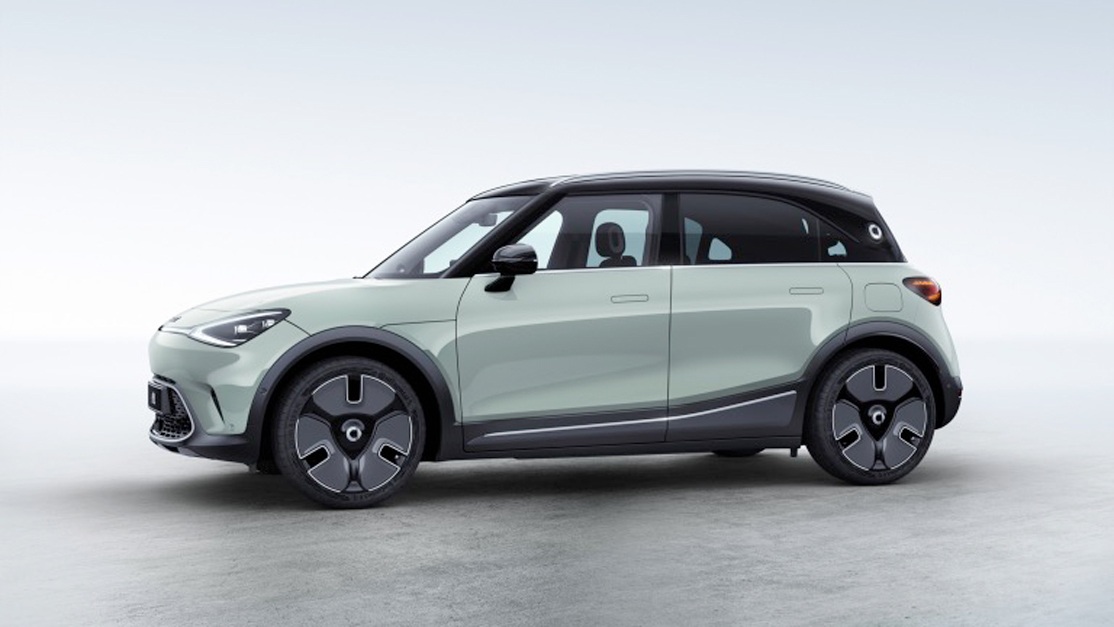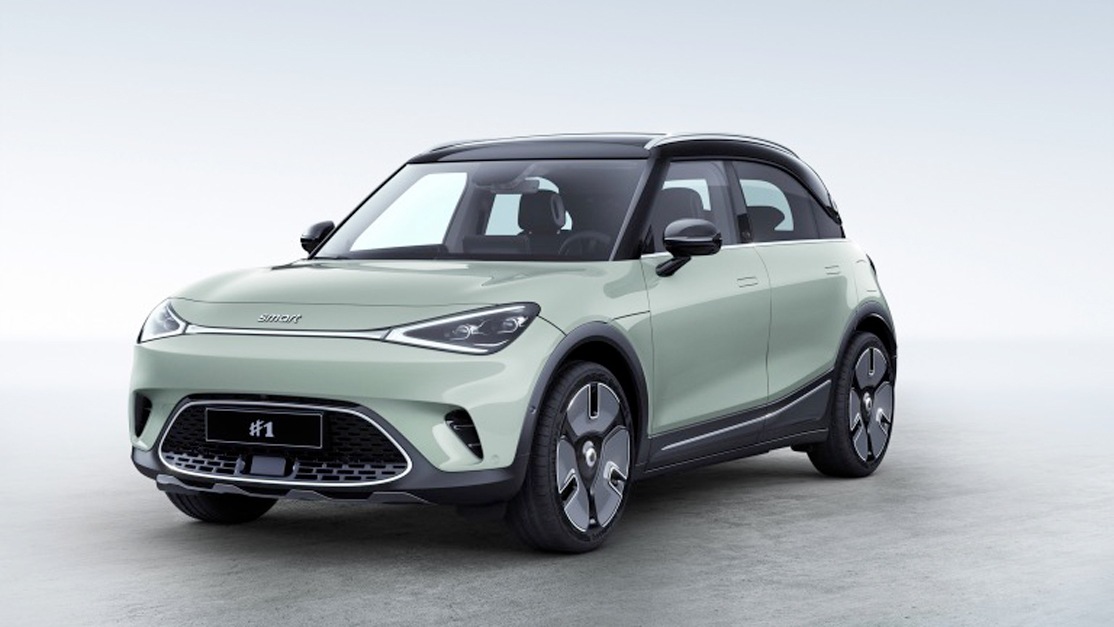
Mon-Fri 9am-5pm
Talk to our friendly electric car leasing experts now: 01942 910 001This website uses cookies to ensure you get the best experience. Learn more
Your Definitive Guide to the New Smart #1 Pro

The new Smart #1 Pro - Your definitive guide
Businesses are no different to personal customers / consumers with electric cars; they demand value, quality and robust information. When it comes to fleet and salary sacrifice deals, there is an equal amount of observation on the cost of the vehicle (payments/rentals) as well as the key running costs.
The financial reasons for moving to zero-emission automotive solutions is somewhat apparent and both the employer and employee do mutually enjoy some clear benefits. For the employer, this offers great corporation tax incentives, lower fleet running costs and of course a robust “green” commitment.
For employees, the significant company car tax savings (via company car or sal sac) makes it a sensible route. Plus the actual driving experience of the pure electric option is now more compelling with thrilling 0-62 times, incredible power (shown as kW) and a whole host of tech. These are not a compromise vehicle.

But in the last 2 years, there has been a noticeable swathe of more expensive cars being released by car manufacturers. Because of the investment required to move their vehicles across to lithium batteries, many have released cars well in excess of £40,000, making this unaffordable for many consumers but also for many fleet and SMEs.
While luxury and performance cars have added credence to the electric car movement, the actual mass adoption is contingent on practical cars which do cost between £20,000 - £30,000, so that they effectively replace our historic mainstays like the Ford Fiesta, VW Golf and Nissan Qashqai (which sit well within this amount).
And the Mercedes-owned Smart brand have recognised this with the latest addition to their hashtag 1 (#1). While the original offering included a 62 kWh battery option in the standard and Brabus model, these are both more expensive cars as shown below:

- Smart #1 Pro -from £35,950 OTR the entry 62 kWh model includes Highway Assist, panoramic roof, climate control, seat heating, automatic high beam assist, LED CyberSparks, privacy glass, front/rear sensors and 360 degree camera;
- Smart #1 Premium -from £38,950 OTR the standard 62 kWh model includes panoramic roof, 19” alloys, concealed door handles, matrix headlights, LED tail lamps, gesture tailgate, privacy glass, automatic door mirrors which are electrically adjustable, driver memory seat, lumbar support, heat pump, ambient lighting, heated seats, Lane Keeping Assist, Keyless Start, Beats sound system, Lane Departure Warning, adaptive cruise control, 12” central screen, 9” HD instrument cluster, HUD, navigation, 360 degree camera and remote control; and
- Smart #1 Brabus -from £43,450 OTR this sports and performance option adds suede upholstery and the 22kW AC charging. Plus some blistering 0 - 62 times!
However, to keep this price competitive with the other comparable options - the MG4 , Cupra Born , VW ID3 and Mini Electric - the group have confirmed a more affordable £31,000 model to be made available. For leasing customers, this makes monthly obligations of sub £300 far more possible, which is necessary to meet the value of the other great EV hatchbacks.
The smaller battery will meet the Pro+ specification, which means the panoramic roof, parking sensors, parking camera, climate control, adaptive cruise control and other features are likely to be included! Where EVs are making inroads, particularly in the hatchback segment, is with the level of specification and equipment offered. Many offer well in excess of what we are accustomed to with our combustion models

But how does the new smaller battery Smart #1 perform?
This RWD hatch will have a 47 kWh usable battery which will offer 0 – 62 times of 6.7 seconds, 112 mph top speeds and 200 kW (or 268hp). Expect a combined winter range of 135 miles with warmer weather allowing for 180 miles. On charging, the 7.4 kW AC max will allow 7 hour and 30 minute 0 – 100% charging times with the 130 kW DC maximum allowing 32 minute 10 – 80% times. A cargo volume of 323L is available with this car. It has a vehicle fuel equivalent of 138 mpg. This EV will have no Bidirectional charging. And the car will not be able to tow.
But how much will the Smart actually cost to fuel?
Comparing petrol and diesel vs electric is a crucial part of the Whole of Life cost analysis. To simplify this for all of our business customers, the e-car lease website will set out a full charge cost (on a standard domestic tariff) and again on our innovative EVC™ (Electric Vehicle Certificate). The way to calculate yourself is actually somewhat simple in that you take:
- The battery size of the vehicle - shown as kWh on the description; and
- The price of the electricity - shown as pence per kWh.

The size of the battery will influence elements like vehicle weight and range but, as highlighted above, it enables you to appreciate the amount of energy you will need in order to fully charge. So a 47 kWh battery like the new Smart 1 would cost:
- £12.50 on a standard domestic tariff (27 pence);
- £4.40 on a supported overnight tariff (9.5 pence) - like the one from EON -https://www.eonnext.com/tariffs/next-drive; and
- £33.34 on a service station / rapid charging solution.(72 pence).
So where you charge, and when you charge, is very important with an electric car. Unlike a petrol or diesel, you have the freedom to make a practical decision which can save you hundreds or even thousands of pounds on your running costs.
And this is without taking into account renewable solutions like solar panels which allow you to charge your EVs for free! For best practice, before you get your EV, ensure you familiarise yourself with the charging costs and location at home, work and in the public network, so you can accurately compare.
For more details on the leading Smart #1 deals just head to our dedicated deals section - or call our electric expert leasing team here at e-car lease, on 01942 910 001

e-car lease work alongside these select finance companies:





e-car lease have a partnership and affiliation with:



Register & get new deals weekly
 Exclusive offers
Exclusive offers
 Electric-only deals
Electric-only deals
 Never miss out
Never miss out

Talk to one of our experts
01942 910 001 Email usLeasing


© Copyright 2025 e-car lease. All rights reserved. e-car lease is a trading name of CarLease (UK) Ltd, e-car lease is a credit broker and not a lender. We are authorised and regulated by the Financial Conduct Authority. Registered No: 706617. BVRLA Membership No. 1471. Registered in England & Wales with Company Number: 09312506 | Data Protection No: ZA088399 | VAT No: 200422089 | Registered Office: Kings Business Centre, Warrington Road, Leigh, Greater Manchester, WN7 3XG
Made by morphsites®












